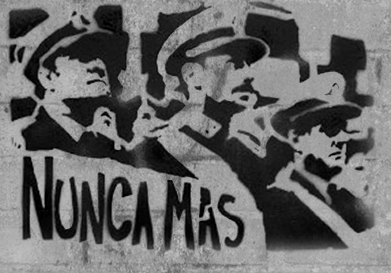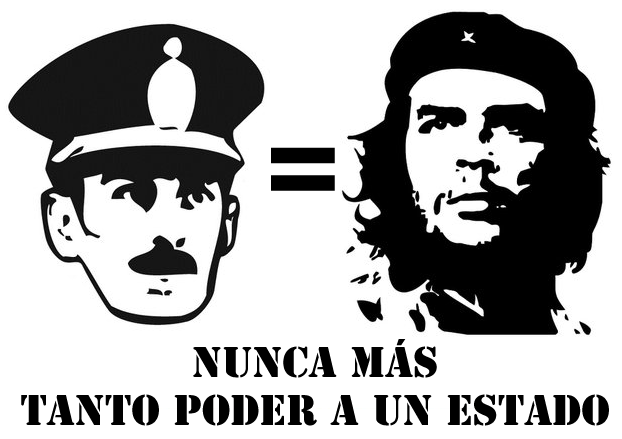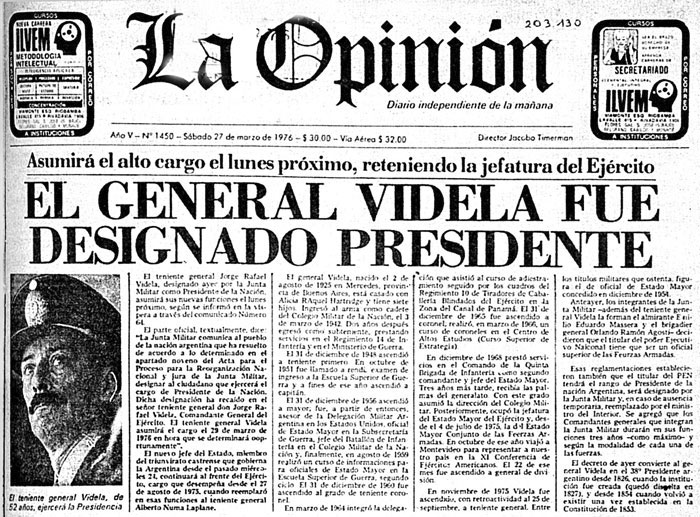EspañolNine years have passed since March 24 became a national holiday in the Republic of Argentina, commemorated as the Day of Remembrance for Truth and Justice for the civilians killed during the last civil-military dictatorship that ruled between 1976 and 1983.
The bloodiest dictatorship in Argentina’s history began on March 24, 1976, when the self-proclaimed National Reorganization Process, in command of the armed forces, took power and deposed the constitutional authority of María Estela Martínez de Perón.
Fast forward to the contemporary era, and the political flag of human rights has been the symbol of both Kirchnerista governments. Former President Nestor Kirchner, in 2004, was the first president to apologize on behalf of the State.

“We have to call things what they are,” he said, “and here, if you’ll allow me, no longer as [just] a friend or a brother, but as president of Argentina, I come to ask forgiveness on behalf of the state for the shame of having been silent during 20 years of atrocities.”
The president then added, “It is not resentment nor hatred that guides us. I am guided by justice and the fight against impunity. Those who committed this dark and macabre act, of so many concentration camps, like ESMA, have only one name: murderers repudiated by the Argentinean people.”
The government is not alone in this cause, as various other political and human rights groups seek to take the lead by organizing other marches in various parts of the country, all commemorating the 38th anniversary of the last coup d’état.
The Labor Party together with other socialist and communist forces will march from the National Congress under the banner of “chasing those who fight is to trample human rights.” The Radical Youth will do their part in the National Committee of the Radical Civic Union, while other organizations like Grandmothers of Plaza de Mayo, H.I.J.O.S, Mothers of Plaza de Mayo (Founding Line) and relatives of desaparecidos y detenidos (detained and disappeared) will march at the symbolic Plaza de Mayo, Buenos Aires, and read from a document under the slogan “Democracy or Corporations.”
Other representatives from across the political spectrum are also making their presence known on this day full of tears, memories, and pain. Julio Cobos, former vice president of the first Cristina Kirchner administration, explained in an opinion column:
The truth makes us free, because it gives us the assurance to choose the most appropriate path. Many times people and communities will avoid those painful truths. We hurt for the disappeared, we hurt for the dead in the Falklands, we hurt for the horror and for the lies. During the years of the dictatorship, there was an attempt to conceal these acts. Censorship prevented the media from letting people know the truth of what was happening. Fear also prevented knowing the truth.
Nicolás Márquez, an Argentinean writer and author of La Otra Parte de la Verdad (The Other Part of the Truth), recounted in an exclusive interview with the PanAm Post that “March 24, 1976, like it or not, was a day of comfort and celebration for the bulk of Argentinians. Almost 40 years later, official propaganda and revisionist historians have taken to distorting and defiling it completely for ideological and propaganda purposes.”
With regard to the commemorative date of March 24, the author explains that “the date, for 98 percent of Argentineans, represents nothing more than a tourist holiday, one of the many that this regime has us accustomed to through the modification of the calendar for demagogic purposes.”

According to Márquez, terror was already present in Argentina well before March 24, 1976. The state-operated “Peronist terrorist” organization called AAA (triple A) murdered political opponents, and communist terrorism (described at times by young idealists as Marxist) was carried out by guerrillas of the ERP (People’s Revolutionary Army), as well as the Montoneros.
Disagreement remains regarding the significance of that particular date and change of hands in power. One list of the dead resulting from the subversive activities in Argentina in the 1970s shows 52 percent of the murders committed by the subversion took place before the new government took power in 1976.
In fact, the socialist newspaper La Opinión published: “One dies every five hours, One bomb every three” (03/19/1976). Days later, other headlines appeared, such as “Argentina helpless against mass killings,” and “Since the beginning of March until yesterday, extremist gangs have killed 56 people.”
During the last military dictatorship, the country witnessed brutal acts, including illegal arrests and secret detention centers for political prisoners. According to the Civil Association of Grandmothers of Plaza de Mayo, close to 500 children were orphaned and lost their identities. Torture was used like never before in Argentina, both by the military and the guerilla.
Today’s events can be surmised by the words included in the prologue of the book Nunca Más (Never Again), the official book and final report of the National Commission on the Disappearance of Persons: “Only democracy is capable of preventing such horror from befalling a people.”
 Versión Español
Versión Español













